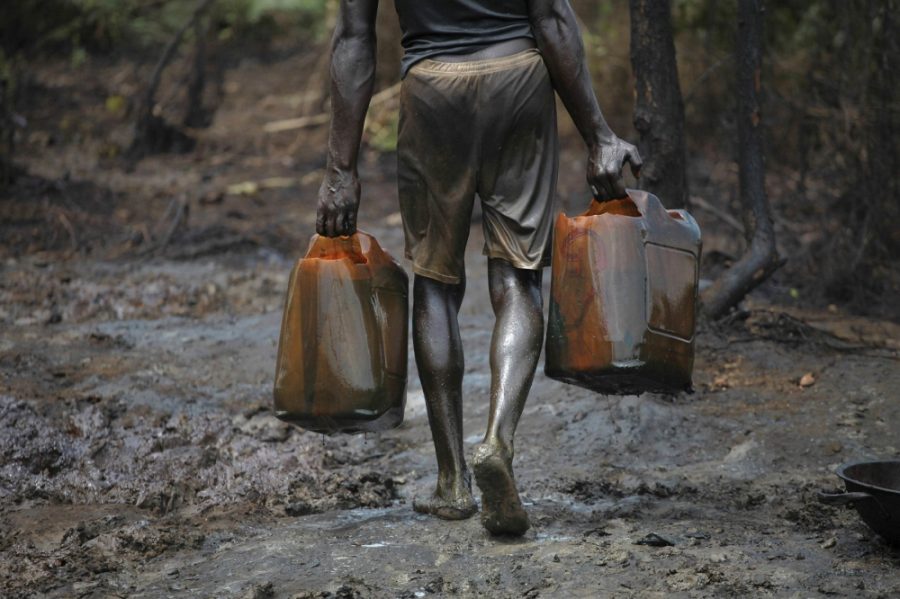Oil theft has replaced the activities of militants, costing the nation trillions of naira, according to a report by Bloomberg.
The report showed that between 2014 and 2019, millions of barrels of crude oil have been lost to theft, with as high as 100,000 barrels stolen daily in the last few months.
Oil theft–seen as the lesser of two evils– picked up again in 2017 and has witnessed incremental growth, although not up to the levels recorded in 2014.
“On one level, theft is probably a more palatable option for Nigeria and the companies operating there than attacks by militants,” the report read.
“About 100,000 barrels a day are being taken out of pipelines, whereas militancy halted at least eight times times that amount at one stage three years ago.”
Commenting on the trend, Ledum Mitee, a lawyer and minority rights activist told Bloomberg that oil thieves know they can make money instead of just sabotaging pipelines for political reasons.
“They believe the oil is theirs and the government is the thief. “People now realize that instead of just cutting pipelines to spite the government, they can make money out of it,” Mitee was quoted as saying.
OIL THIEVES ARE OVER 500,000 NATIONWIDE
Described as a booming industry, with less risky implications, the report estimated the number of oil thieves at around half a million people.
The thieves operate illegal refineries in parts of the Nigeria Delta where stolen crude are kept in hundreds of cauldrons, each of which can hold as much as 150 barrels of oil.
The illegal refineries, called “scaled up versions of widespread gin distilleries” employ about 100 people working in shifts round the clock.
“Yields from a single cauldron will include 7,500 liters of diesel, 2,000 liters of gasoline and 500 liters of kerosene a day. It costs about 4 million naira ($11,100) to construct a boiling pot,” the report said.
Last year, TheCable Petrobarometer did an undercover report exposing the activities of some of the illegal refineries where oil thieves claimed to collude with security officials in order to keep their business afloat.
FG, PRIVATE OPERATORS ON THE RECEIVING END
Apart from the negative environmental impact and fatal fire incidents resulting from incessant oil theft, the federal government and international oil companies have lost production volumes overtime that have translated to huge financial losses.
Companies like Shell Petroleum Development Company (SPDC), Aiteo Eastern Exploration & Production Company Limited and Chevron Nigeria Limited (CNL) have been affected, leading to several force majeures on the Trans Forcados Pipeline and more recently the Nembe Creek Trunk Line.
Speaking at a strategic review meeting in May, Nuhu Ribadu, chairman of the Petroleum Revenue Special Task Force said the federal government loses as much as $25 million (N7.7 billion) daily and $9 billion (N2.8 trillion) annually to oil theft.
He said the fight against bunkering, piracy, and kidnapping in the “strategic asset base of the country…requires new models of compassionate and workable policy responses.”







